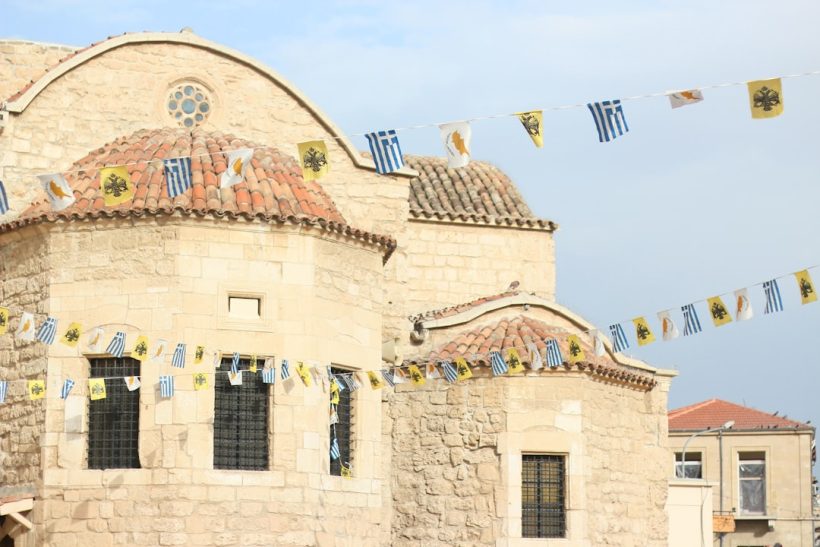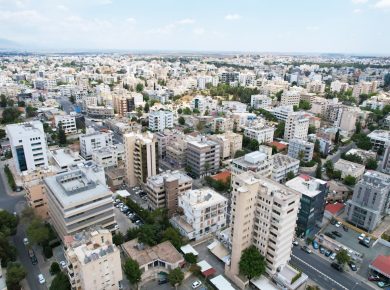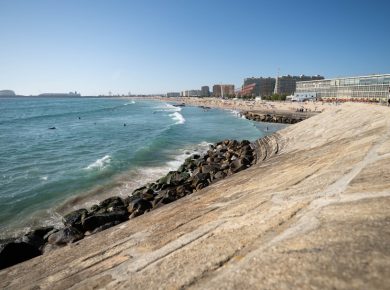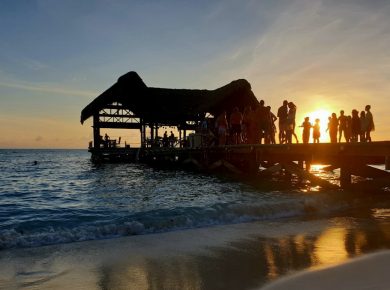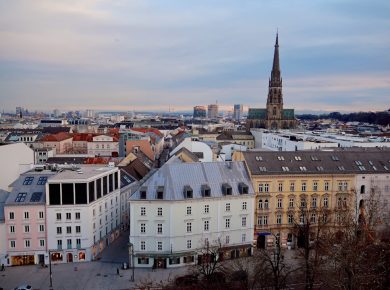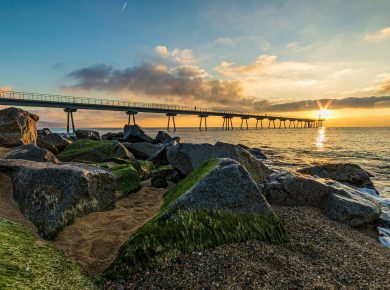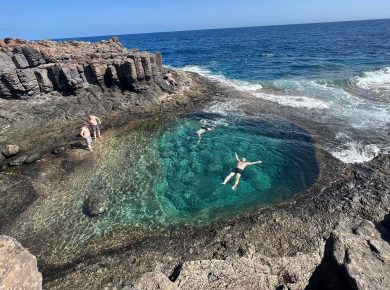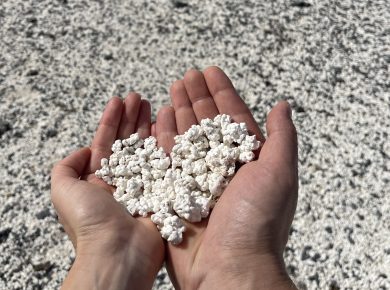Situated south of Turkey, west of Syria, and north of Egypt, the island nation of the Republic of Cyprus is part of the Eastern Mediterranean. Renowned for its varied culture, rich history, & stunning scenery, this island in the Mediterranean Sea is the third largest and most populated in the region. Cyprus’s largest and capital cities are both named Nicosia. The Euro is the currency of the nation, and Greek & Turkish are its official languages.
Greece, Rome, Byzantium, Venice, the Ottoman Empire, and the British Isles have all left their mark on Cyprus’s complicated historical past. As a member of the European Union today, Cyprus’s economy is mostly focused on services, shipping, & tourism. Cyprus is a well-liked travel destination with beaches, historic sites, and a lively nightlife. The island draws visitors looking for adventure, relaxation, and cultural experiences because it provides a blend of contemporary conveniences & old-world charm.
Cyprus is known for its unique food, friendly people, and pleasant weather. The island offers activities for a variety of interests, such as exploring historical sites, participating in water sports, and unwinding on the beach. To shed light on Cyprus’s standing as a Mediterranean travel destination, this article will look at the country’s history, culture, geography, cuisine, tourism, and economy. The Times of Antiquity and Medieval Times. About 1200 BC, Greek settlers founded city-kingdoms in Cyprus that prospered throughout the Archaic and Classical eras.
The island was later taken over by the Romans, Venetians, and Byzantines, and in the sixteenth century it was ruled by the Ottomans. Modern Conflict and History. Cyprus was leased to the British Empire in 1878 and remained a British colony until 1960, when it attained independence. The island was divided in 1974 as a result of tensions between the Greek and Turkish communities, though this conflict is also emblazoned in the island’s history.
Traditions and Cultural Heritage. As a reflection of its rich history and diversified populace, Cyprus’s culture is a fusion of Greek, Turkish, & Middle Eastern elements. The architecture, dance, music, & cuisine of the island all reflect its rich cultural past.
Folk songs & dances performed at festivals and celebrations are examples of traditional Cypriot music. Cyprus’s varied cultural heritage is also reflected in its food, which includes dishes with grilled meats, fresh seafood, olive oil, & regional herbs and spices. Fresh ingredients and straightforward cooking methods that bring out the flavors of the food are hallmarks of Cypriot cuisine.
Ancient ruins, Byzantine churches, & traditional villages that provide a window into the island’s rich past are some of its cultural attractions. Cyprus’s strategic location at the intersection of three continents—Africa, Asia, & Europe—has influenced the country’s history and culture. The island’s varied terrain—which consists of plains, mountains, & coastline—defines it. Nestled among picturesque villages, vineyards, & monasteries, the Troodos Mountains dominate the central region of the island. Gorgeous views of the Mediterranean Sea can be seen from the Kyrenia Range, which stretches along Cyprus’s northern coast.
Nestled between two mountain ranges, the Mesaoria Plain is renowned for its rich soil & abundant agricultural output. Visitors from all over the world come to Cyprus to enjoy its rocky coves, sandy beaches, and crystal-clear waters. Cyprus experiences hot, dry summers & mild, rainy winters due to its Mediterranean climate. The island is a great place for sun seekers, with over 300 days of sunshine annually. Summertime, which lasts from June to September, is hot & dry, with some places seeing highs of 40°C (104°F).
The mild and rainy winter months of December through February have average temperatures of about 15°C (59°F). When the weather is warm but not too hot, spring and autumn are great times to visit Cyprus. Cyprus’s varied terrain and climate make it a year-round destination for outdoor pursuits like bicycling, hiking, diving, and birdwatching. Greek, Turkish, and Middle Eastern flavors are expertly combined in Cypriot cuisine, which honors the island’s rich cultural legacy.
Fresh ingredients like olive oil, veggies, grains, herbs, and seafood form the foundation of the cuisine. Souvlaki, which is skewered and grilled meat (usually chicken or pork) & served with pita bread & salad, is one of the most well-liked foods in Cyprus. Halloumi cheese, another staple meal, is typically grilled or fried & is made from a blend of goat’s and sheep’s milk. A popular meal in Cyprus, meze is a selection of small plates like hummus, tzatziki, keftedes (meatballs), dolmades (stuffed grape leaves), and kleftiko (slow-cooked lamb). Family values & communal festivities are at the core of Cypriot customs.
Marriages are significant social gatherings in Cyprus that include food, dancing, and music for family and friends. Weddings in Cyprus are typically marked by traditional rituals like tossing money for wealth and breaking plates for good fortune. In Cyprus, Easter is a noteworthy celebration that involves religious processions, food, and customary activities like cracking eggs. Offering food and drink to guests upon their arrival is a sign of the hospitality that is characteristic of the Cypriot culture.
When visiting traditional villages, taking part in local festivals, and dining at family-run tavernas, visitors to Cyprus can get a firsthand look at these customs. A vast array of attractions can be explored by visitors to Cyprus, a well-liked vacation spot. Archaeological sites like the ancient city-kingdom of Kourion, the Tombs of the Kings in Paphos, and the medieval castles of Kyrenia & Limassol are examples of the island’s rich history. The UNESCO-listed Byzantine churches in the Troodos Mountains, with their breathtaking frescoes, charming villages, and picturesque trails, are a haven for nature lovers.
Paphos is a seaside town renowned for its stunning beaches, historic ruins, and quaint harbor full of eateries and cafes. With its ancient old town enclosed by Venetian walls, Nicosia is the political & cultural center of Cyprus. At the Ledra Street market, visitors can purchase handcrafted goods from the region, explore the historic homes lining the narrow streets, and visit museums like the Cyprus Museum and Leventis Municipal Museum. Limassol, a coastal resort town, is well-known for its vibrant nightlife, fine beaches, and yearly wine festival honoring the island’s winemaking heritage. Another well-liked location is Larnaca, which features a promenade surrounded by palm trees, a salt lake that attracts flamingos in the winter, and the Hala Sultan Tekke Mosque, a significant Muslim pilgrimage site. An Important Driver of the Economy is Tourism.
In Cyprus, tourism is a significant industry that generates thousands of jobs and significantly boosts the GDP of the nation. Millions of travelers come to the island every year, drawn by its stunning beaches, interesting historical sites, lively culture, and friendly people. Shipping and Services: Strategic Location and Diversified Sector. Cyprus’s strategic location at the intersection of Europe, Asia, and Africa makes the shipping sector vital to the country.
When it comes to tonnage, the nation has one of the biggest merchant fleets worldwide. Cyprus also has a strong services industry, which encompasses information technology, banking, finance, real estate, and healthcare. Sustainable Development and Agriculture. Producing citrus fruits, potatoes, grapes for winemaking, olives for olive oil production, dairy products like halloumi cheese, & traditional crafts like lace-making, agriculture contributes significantly to the economy.
Cyprus’s government has put policies in place to encourage sustainable development through investments in clean energy sources like wind and solar energy, establishing the nation as a global center for business with attractive tax breaks for foreign capital. In summary, Cyprus is a Mediterranean jewel that provides a special fusion of geography, history, culture, food, tourism attractions, and business opportunities. Archaeological sites from antiquity, when the island was ruled by a number of different civilizations, including the Greeks, Romans, Byzantines, Venetians, Ottomans, and British, bear witness to the island’s rich history. Cyprus’s multifaceted culture is evident in its music, dance, food, customs, architecture, & festivals, all of which are influenced by Greek, Turkish, and Middle Eastern cultures. Cyprus’s climate and topography make it the perfect place to enjoy outdoor pursuits like hiking in the Troodos Mountains & lounging on the stunning beaches that line the coastline.
Fresh ingredients like seafood, veggies, olive oil, grilled meats, herbs, and spices, along with meze dishes that showcase the country’s cultural diversity, are all featured in Cyprus’ delectable cuisine. A vast array of attractions are provided by Cyprus’s tourism sector, including natural wonders like the Troodos Mountains, historic cities like Nicosia, coastal resorts like Limassol, and cultural events like traditional weddings. Archaeological sites like Kourion and the Tombs of the Kings in Paphos are also available. The tourism industry, which employs thousands of people, the shipping industry, which benefits from Cyprus’s advantageous location, the services sector, which includes banking, finance, real estate, education, healthcare, and information technology, agriculture, which produces citrus fruits, potatoes, grapes, olives, dairy products, traditional crafts, and sustainable development through investments in renewable energy sources, are the main drivers of the country’s economy.
In conclusion, Cyprus is regarded as a Mediterranean gem because it provides a distinctive fusion of geography, history, cuisine, tourism, and economic opportunities. As such, it is the perfect place for travelers seeking relaxation, adventure, and cultural experiences. In other words, it is the perfect place for travelers seeking relaxation, adventure, and cultural experiences.
If you’re planning a trip to the Republic of Cyprus, you might also be interested in exploring the beautiful coastal town of Malgrat de Mar in Catalonia, Spain. Check out this article for tips on where to stay and what to do in this charming Mediterranean destination.
